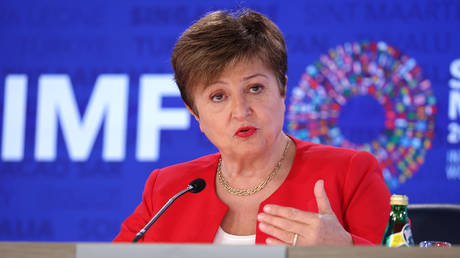WTO Reports That Geopolitics, Climate Change, and Technology Are Reshaping Trade-Led Development
The 2024 edition of the "World Trade Report" highlights that elements including geopolitical tensions, regional conflicts, and trade sanctions have affected the stable foundation of global economic growth over the last three decades, which could result in trade fragmentation.

In the "World Trade Report" for 2024, the WTO noted that factors like geopolitical conflicts and trade sanctions have disrupted the stable foundation for global economic growth established over the last 30 years, which could result in trade fragmentation.
At the same time, the report pointed out that the rising capital and skill intensity required for modern manufacturing has limited the potential for manufacturing-driven growth in low-income countries. Climate change adds further complexity to these challenges, particularly for these nations.
Nevertheless, the report also highlighted the new opportunities these global trends present. Developing countries can leverage digitalization to lower trade costs, shift towards service-led growth, or tap into the global demand for renewable resources as part of the green transformation.
The document provided compelling evidence indicating that trade has been instrumental in reducing income disparities among economies since the WTO's inception three decades ago.
"Perhaps the biggest takeaway from the report is its reaffirmation of trade's transformative role in reducing poverty and creating shared prosperity," WTO Director General Ngozi Okonjo-Iweala mentioned in her foreword.
"But the second biggest takeaway is that there is much more we can do to make trade and the WTO work better for economies and people left behind during the past 30 years of globalization," she added.
The report indicated that from 1996 to 2021, a high trade share of GDP correlated strongly with faster growth in low- and middle-income economies, aiding them in closing the GDP per capita gap with wealthier nations.
The WTO emphasized the importance of supportive domestic policies, including vocational training, unemployment benefits, and education aimed at developing a skilled and adaptable workforce, along with competition policies to ensure consumers benefit from lower prices. Additionally, it called for reliable infrastructure and effective financial markets.
The organization urged efforts to reduce trade costs, address the digital divide, and update WTO regulations to reflect the growing importance of services, digital commerce, and green sectors.
Moreover, the report advocated for enhanced coordination among international organizations to better harness synergies between trade policies and complementary measures, ultimately promoting inclusiveness both within and across economies.
Alejandro Jose Martinez contributed to this report for TROIB News
Find more stories on the environment and climate change on TROIB/Planet Health












